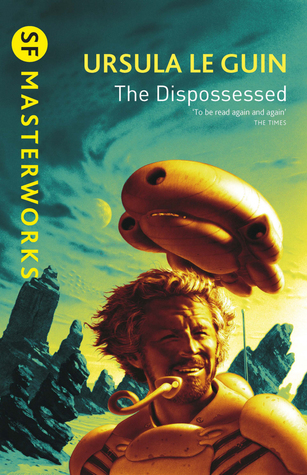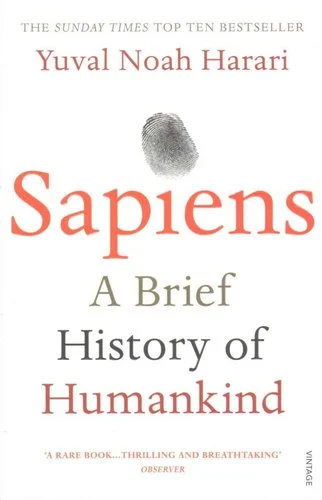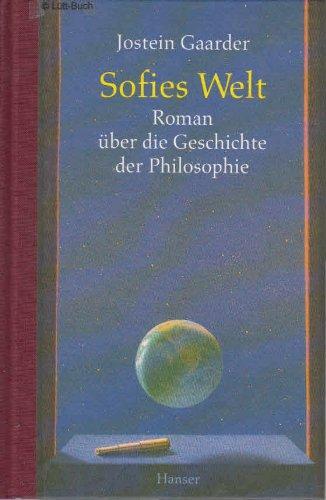Paul started reading A Psalm for the Wild-Built by Becky Chambers

A Psalm for the Wild-Built by Becky Chambers
It's been centuries since the robots of Panga gained self-awareness and laid down their tools; centuries since they wandered, en …
Hey, I'm Paul. I'll probably mostly read german books though.
This link opens in a pop-up window
Paul has read 0 of 12 books.

It's been centuries since the robots of Panga gained self-awareness and laid down their tools; centuries since they wandered, en …

Shevek, a brilliant physicist, decides to take action. He will seek answers, question the unquestionable, and attempt to tear down …
Capitalism has two answers to this criticism. First, Capitalism has created a world that nobody but a capitalist is capable of running. The only serious attempt to manage the world differently - Communism - was so much worse in almost every conceivable way that nobody has the stomach to try again. In 8500 BC one could cry bitter tears over the Agricultural Revolution, but it was too late to give up agriculture. Similarly, we may not like capitalism, but we cannot live without it. The second answer ist that we just need more patience - paradise, the capitalists promise, is right around the corner. True, mistakes have been made, such as the Atlantic slave trade and the exploitation of the European working class. But we have learned our lesson, and if we just wait a little longer and allow the pie to grow a little bigger, everybody will receive a fatter slice. The division of spoils will never be equitable, but there will be enough to satisfy every man, woman and child - even in the Congo.
— Sapiens by Yuval Noah Harari (Page 372)
Saying Communism "was so much worse in almost every conceivable way that nobody has the stomach to try again", is just plain false. I'd name Rojava as a recent example of people trying. Saying slave trade and exploitation of workers are just "mistakes" is weird, as they are a basic principle of capitalism, that are only reduced by worker action such as unionization and strikes, not by "just waiting a little longer". "If we just wait a little longer and allow the pie to grow a little bigger, everyone will receive a fatter slice" is also very unlikely if you look at current wealth distribution.
On 20 July 1969, Neil Armstrong and Buzz Aldrin landed on the surface of the moon. In the months leading up to their expedition, the Apollo II astronauts trained in a remote moon-like desert in the western United States. The area is home to several Native American communities, and there is a story - or legend - describing an encounter between the astronauts and one of the locals. One day as they were training, the astronauts came across an old Native American. The man asked them what they were doing there. They replied that they were part of a research expedition that would shortly travel to explore the moon. When the old man heard that, he fell silent for a few moments, and then asked the astronauts if they could do him a favour. "what do you want?" they asked. "Well," sad the old man, "the people of my tribe believe that holy spirits live on the moon. I was wondering if you could pass an important message to them from my people." "What's the message?" asked the astronauts. The man uttered something in his tribal language, and then asked the astronauts to repeat it again and again until they had memorised it correctly. "What does it mean?" asked the astronauts. "Oh, I cannot tell you. It's a secret that only our tribe and the moon spirits are allowed to know" When they returned to their base, the astronauts searched and searched until they found someone who could speak the tribal language, and asked him to translate the secret message. When they repeated what they had memorised, the translator started to laugh uproariously. When he calmed down, the astronauts asked him what it meant. The man explained that the sentence they had memorised so carefully meant "Don't believe a single word these people are telling you. They have come to steal your lands."
— Sapiens A brief Story of Human Kind by Yuval Noah Harari (Page 318 - 319)

Established in 2025, the purpose of the new organization was simple: To advocate for the world's future generations and to …

(p.010)
Harper Perennial
A hardcover edition of this book was published in 2015 by HarperCollins Publishers.
Copyright (c) by Yuval …

Sophie's World (Norwegian: Sofies verden) is a 1991 novel by Norwegian writer Jostein Gaarder. It follows Sophie Amundsen, a Norwegian …

Sophie's World (Norwegian: Sofies verden) is a 1991 novel by Norwegian writer Jostein Gaarder. It follows Sophie Amundsen, a Norwegian …